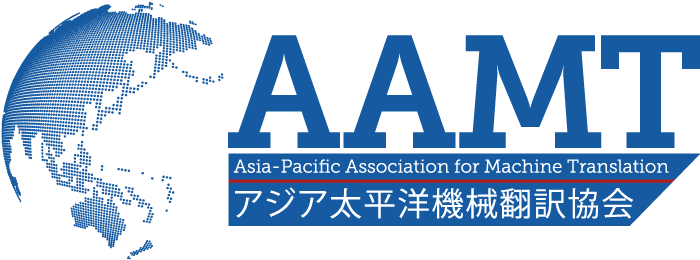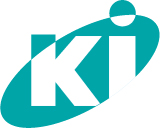NOTICE: The date of WAT2019 has been changed from 3rd to 4th of November.
The submission, evaluation, and baseline pages have been opened.
The policy for participants has been added.
Many Asian countries are rapidly growing these days and the importance of communicating and exchanging the information with these countries has intensified. To satisfy the demand for communication among these countries, machine translation technology is essential.
Machine translation technology has rapidly evolved recently and it is seeing practical use especially between European languages. However, the translation quality of Asian languages is not that high compared to that of European languages, and machine translation technology for these languages has not reached a stage of proliferation yet. This is not only due to the lack of the language resources for Asian languages but also due to the lack of techniques to correctly transfer the meaning of sentences from/to Asian languages. Consequently, a place for gathering and sharing the resources and knowledge about Asian language translation is necessary to enhance machine translation research for Asian languages.
The Workshop on Machine Translation (WMT), the world's largest machine translation workshop, mainly targets on European languages and does not include Asian languages. The International Workshop on Spoken Language Translation (IWSLT) has spoken language translation tasks for some Asian languages using TED talk data, but these is no task for written language.
The Workshop on Asian Translation (WAT) is an open machine translation evaluation campaign focusing on Asian languages. WAT gathers and shares the resources and knowledge of Asian language translation to understand the problems to be solved for the practical use of machine translation technologies among all Asian countries. WAT is unique in that it is an "open innovation platform": the test data is fixed and open, so participants can repeat evaluations on the same data and confirm changes in translation accuracy over time. WAT has no deadline for the automatic translation quality evaluation (continuous evaluation), so participants can submit translation results at any time.
Following the success of the previous WAT workshops (WAT2014 -- WAT2018), WAT2019 will bring together machine translation researchers and users to try, evaluate, share and discuss brand-new ideas about machine translation. For the 6th WAT, we will include 5 new translation subtasks:
In addition to the shared tasks, the workshop will also feature scientific papers on topics related to the machine translation, especially for Asian languages.
Topics of interest include, but are not limited to:
 |
SunFlare Co., Ltd. |
 |
Japan Exchange Group, Inc. (JPX) |
 |
AAMT |
 |
Kawamura International |
| Translation Task Submission Deadline | July 26, 2019 (EXTENDED!!) | |
| Research Paper Submission Deadline | August 19, 2019 | |
| System Description Paper Submission Deadline | September 13, 2019 | |
| Notification of Acceptance for Research Papers | September 17, 2019 | |
| Review Feedback of System Description Papers | September 20, 2019 | |
| Camera-ready Deadline (both Research and System Description Papers) | September 30, 2019 | |
| Workshop Dates | November 3-4, 2019 |
* All deadlines are calculated at 11:59PM UTC-7
| 09:00 - 09:30 | Welcome & Overview |
| Overview of the 6th Workshop on Asian Translation | |
| Toshiaki Nakazawa, Nobushige Doi, Shohei Higashiyama, Chenchen Ding, Raj Dabre, Hideya Mino, Isao Goto, Win Pa Pa, Anoop Kunchukuttan, Shantipriya Parida, Ondřej Bojar and Sadao Kurohashi | |
| 09:30 - 10:30 | Research Paper I |
| 09:30 - 09:50 : Compact and Robust Models for Japanese-English Character-level Machine Translation | |
| Jinan Dai and Kazunori Yamaguchi | |
| 09:50 - 10:10 : Controlling Japanese Honorifics in English-to-Japanese Neural Machine Translation | |
| Weston Feely, Eva Hasler and Adrià de Gispert | |
| 10:10 - 10:30 : Designing the Business Conversation Corpus | |
| Matīss Rikters, Ryokan Ri, Tong Li and Toshiaki Nakazawa | |
| 10:30 - 10:50 | Poster Booster I |
| 10:50 - 12:30 | System Desccription Paper (Poster) I |
| - English to Hindi Multi-modal Neural Machine Translation and Hindi Image Captioning | |
| Sahinur Rahman Laskar, Rohit Pratap Singh, Partha Pakray and Sivaji Bandyopadhyay | |
| - Supervised and Unsupervised Machine Translation for Myanmar-English and Khmer-English | |
| Benjamin Marie, Hour Kaing, Aye Myat Mon, Chenchen Ding, Atsushi Fujita, Masao Utiyama and Eiichiro Sumita | |
| - NICT's participation to WAT 2019: Multilingualism and Multi-step Fine-Tuning for Low Resource NMT | |
| Raj Dabre and Eiichiro Sumita | |
| - KNU-HYUNDAI’s NMT system for Scientific Paper and Patent Tasks onWAT 2019 | |
| Cheoneum Park, Young-Jun Jung, Kihoon Kim, Geonyeong Kim, Jae-Won Jeon, Seongmin Lee, Junseok Kim and Changki Lee | |
| - English-Myanmar Supervised and Unsupervised NMT: NICT's Machine Translation Systems at WAT-2019 | |
| Rui Wang, Haipeng Sun, Kehai Chen, Chenchen Ding, Masao Utiyama and Eiichiro Sumita | |
| - UCSMNLP: Statistical Machine Translation for WAT 2019 | |
| Aye Thida, Nway Nway Han, Sheinn Thawtar Oo and Khin Thet Htar | |
| - NTT Neural Machine Translation Systems at WAT 2019 | |
| Makoto Morishita, Jun Suzuki and Masaaki Nagata | |
| - Neural Machine Translation System using a Content-equivalently Translated Parallel Corpus for the Newswire Translation Tasks at WAT 2019 | |
| Hideya Mino, Hitoshi Ito, Isao Goto, Ichiro Yamada, Hideki Tanaka and Takenobu Tokunaga | |
| - English to Hindi Multi Modal Image Caption Translation: A Shared Task | |
| Gurpreet Josan, Jagroop Kaur and Jaswinder Singh | |
| - Facebook AI’s WAT19 Myanmar-English Translation Task Submission | |
| Peng-Jen Chen, Jiajun Shen, Matthew Le, Vishrav Chaudhary, Ahmed El-Kishky, Guillaume Wenzek, Myle Ott and Marc'Aurelio Ranzato | |
| - Combining Translation Memory with Neural Machine Translation | |
| Akiko Eriguchi, Spencer Rarrick and Hitokazu Matsushita | |
| - CVIT's submissions to WAT-2019 | |
| Jerin Philip, Shashank Siripragada, Upendra Kumar, Vinay Namboodiri and C V Jawahar | |
| - LTRC-MT Simple & Effective Hindi-English Neural Machine Translation Systems at WAT 2019 | |
| Vikrant Goyal and Dipti Misra Sharma | |
| 12:30 - 14:00 | Lunch Break |
| 14:00 - 14:45 | Invited Talk by Dr. Desmond Elliot |
| 14:45 - 15:05 | Poster Booster II |
| 15:05 - 15:10 | Commemorative Photo |
| 15:10 - 16:30 | System Desccription Paper (Poster) II |
| - Long Warm-up and Self-Training: Training Strategies of NICT-2 NMT System at WAT-2019 | |
| Kenji Imamura and Eiichiro Sumita | |
| - Supervised neural machine translation based on data augmentation and improved training & inference process | |
| Yixuan Tong, Liang Liang, Boyan Liu, Shanshan Jiang and Bin Dong | |
| - Sarah's Participation in WAT 2019 | |
| Raymond Hendy Susanto, Ohnmar Htun and Liling Tan | |
| - Our Neural Machine Translation Systems for WAT 2019 | |
| Wei Yang and Jun Ogata | |
| - Japanese-Russian TMU Neural Machine Translation System using Multilingual Model for WAT 2019 | |
| Aizhan Imankulova, Masahiro Kaneko and Mamoru Komachi | |
| - NLPRL at WAT2019: Transformer-based Tamil – English Indic Task Neural Machine Translation System | |
| Amit Kumar and Anil Kumar Singh | |
| - Idiap NMT System for WAT 2019 Multimodal Translation Task | |
| Shantipriya Parida, Ondřej Bojar and Petr Motlicek | |
| - WAT2019: English-Hindi Translation on Hindi Visual Genome Dataset | |
| Loitongbam Sanayai Meetei, Thoudam Doren Singh and Sivaji Bandyopadhyay | |
| - SYSTRAN @ WAT 2019: Russian-Japanese News Commentary task | |
| Jitao Xu, TuAnh Nguyen, MinhQuang PHAM, Josep Crego and Jean Senellart | |
| - UCSYNLP-Lab Machine Translation Systems for WAT 2019 | |
| Yimon ShweSin, Win Pa Pa and KhinMar Soe | |
| 16:30 - 17:30 | Research Paper II |
| 16:30 - 16:50 : Sentiment Aware Neural Machine Translation | |
| Chenglei Si, Kui Wu, Ai Ti Aw and Min-Yen Kan | |
| 16:50 - 17:10 : Overcoming the Rare Word Problem for low-resource language pairs in Neural Machine Translation | |
| Thi-Vinh Ngo, Thanh-Le Ha, Phuong-Thai Nguyen and Le-Minh Nguyen | |
| 17:10 - 17:30 : Neural Arabic Text Diacritization: State of the Art Results and a Novel Approach for Machine Translation | |
| Ali Fadel, Ibraheem Tuffaha, Bara' Al-Jawarneh and Mahmoud Al-Ayyoub | |
| 17:30 - 17:35 | Closing |
Tasks:
Dataset:
Baseline system:
Baseline systems site is now open.
We will evaluate the translation performance of the results submitted through
automatic evaluation and human evaluation.
Automatic evaluation:
We will prepare an automatic evaluation server.
You will be able to evaluate the translation results at any time using this server.
Human evaluation:
Human evaluation will be carried out with two kinds of method,
which are Pairwise Crowdsourcing Evaluation and JPO Adequacy Evaluation.
The detailed regulations of the human evaluation will be announced soon.
Submission:
Submission site is now open.
(User Name and Password is necessary to access.)
Evaluation results:
Evaluation results site is now open.
Participants who submit results for human evaluation are required to submit description papers of their translation systems and evaluation results. All submissions and feedback are handled electronically as below.
The application site
for task participants of WAT2019 is now open.
For questions, comments, etc. please email to "wat-organizer -at- googlegroups -dot- com".
Japan Patent Office
The Association for Natural Language Processing (Japanese Page)
National Institute of Information and Communications Technology (NICT)
Japanese Exchange Group (JPX)
Asia-Pacific Association for Machine Translation (AAMT)
2019-07-23: submisson, evaluation, baseline opened
2019-06-10: policy added
2019-04-26: task updated
2019-04-12: updated
2019-02-01: site opened
NICT (National Institute of Information and Communications Technology)
Kyoto University
Last Modified: 2019-06-10